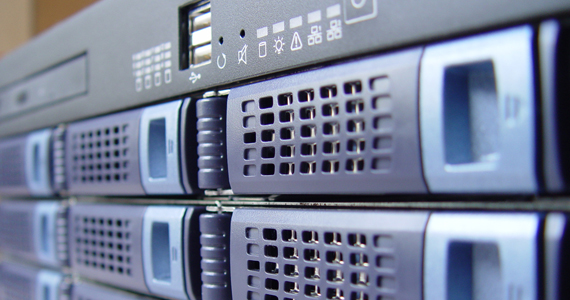One of the biggest concerns for any company that owns servers is the management and operation of that equipment. When referring to server management, two methods are frequently mentioned: Managed Hosting & Colocation. Although these methods share similar characteristics and provide similar benefits, they are both very different options for your IT infrastructure.
What are these methods? How do they work? Why are they beneficial?
Colocation primarily deals with the physical facilities related to your IT infrastructure. It is a hosting solution that places your server(s) in a secure, stable and remote location. This allows businesses to avoid the expense of constructing, expanding or maintaining the physical area where the data is housed. Essentially, you are leasing space for your IT assets, but you still own all of the hardware. Colocation offers many benefits to businesses. See some below:
- Security: Many data center facilities employ high-level security measures onsite. This could include: CCTV, 24/7 monitoring systems, biometric security practices and security guards. Colocation is a common means for providing business continuity with redundant power, cooling and connectivity withstand-by generators. Your servers should be much more secure than in your own facility.
- Better Connectivity: Colocation facilities usually have fully redundant network connections to ensure critical business applications run uninterrupted. You will pay a premium for redundancy and / or increased bandwidth.
- Capital Savings: Building a space to house your servers can be pretty costly, especially when you consider electrical, environmental and 24×7 operation requirements. The on-going capital expenditure of building and operating this space can limit growth and be a distraction to your business. Colocation eliminates the need to build and maintain a space for your IT infrastructure, allowing you to focus on your business.
 Managed Hosting extends the benefits of colocation by eliminating not only the need to maintain a physical facility but also the requirement to own and possibly maintain the IT infrastructure. Managed Hosting can refer to dedicated servers that are set up, monitored, secured and maintained by a provider. The servers and devices are owned by a provider and are effectively leased to clients. Managed hosting usually includes: hardware & operating system setup and configuration, hardware replacement and technical support; and even patching, updating and monitoring. Some benefits of managed hosting are listed below:
Managed Hosting extends the benefits of colocation by eliminating not only the need to maintain a physical facility but also the requirement to own and possibly maintain the IT infrastructure. Managed Hosting can refer to dedicated servers that are set up, monitored, secured and maintained by a provider. The servers and devices are owned by a provider and are effectively leased to clients. Managed hosting usually includes: hardware & operating system setup and configuration, hardware replacement and technical support; and even patching, updating and monitoring. Some benefits of managed hosting are listed below:
- Peace of Mind: You don’t have to worry about managing the platform or the network, the provider takes care of everything. Plus, if the equipment breaks or fails, you don’t incur any additional charges to repair the equipment.
- Free Up Resources: Managed hosting allows your IT professionals to focus on other projects within the business because the management of your IT systems is taken care of by the provider. It also prevents you from having to hire or train additional personnel to manage your servers.
- Equipment: With managed hosting, you rent the equipment from the provider. Purchasing and maintaining equipment can get quite expensive. Also, as new technology becomes available, you won’t have to worry about upgrading.
- Pay for What You Use: With managed hosting, agreements can be structured so that you pay for the processing power, memory, and or storage you need and not more. You can scale quickly and painlessly knowing that additional capacity is readily available.
As you can see, both methods provide different benefits. You’ll have to choose the option that best suits the need for your business. If you need help making this decision, contact the experts at 3coast today and they’ll provide you with the information needed to make an informed choice.
3coast provides a wide range of server & network monitoring services.